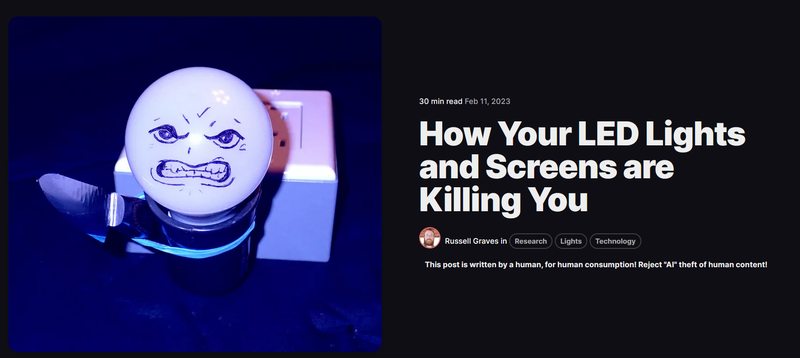
It is a wonderful article about why LED lights suck and are slowly making us lose it.
I’m probably pretty light-sensitive, always have been. When I get headlights the strength of high-security prison floodlights in my face, I get stabby. It infuriates my retina to the point of wanting to immediately shut down this light now and forever.
All those cheap LED bulbs on porches, desks, in bedroom strips, in every single piece of electronic even when it’s completely unnecessary (I have a guitar pedal with a blue LED light more powerful than a thousand suns), are messing with me.
The article provides the answer as to why: that blue, 450-480nm light. It totally makes sense now. I knew it. I knew something was off with those LED lights, even when broadcasting 2700K warm light.
The answer to why LED lights invaded our lives the way they did is not so much their efficiency, it’s the fact that every single business out there in the world was like “we need to replace [item] for better lighting” which probably created an insane amount of transactions.
We already know that LED lights die rather quickly. All the supposed gains from having low power lights are offset by the costs of replacing all the bulbs, transformers and replacing all the LED lights that will die. It’s fake efficiency.
Once again, they disguise technological advance as a Quality of Life improvement when it’s essentially only a business agreement probably detrimental to said Quality of Life.
In 2023, now that we’ve put LEDs in everything, the answer, once the sun goes down, seems a blindingly clear “No!” Throughout the studies I’ve been digging into, there’s a lot of hemming and hawing about “Well, yes, blue light from LEDs is nasty to humans, but we can’t question the 24/7 productivity that lighting offers, so… I suppose we might file off some edges with future research…” – without ever asking the questions about “Is 24/7 productivity actually good for humans?”
It is not in any way.